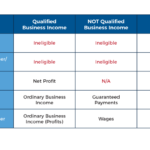Financial planning, and the process of creating a financial plan, has changed extensively over the nearly 45 years since the first class of CFP certificants. While early on, the financial plan was used primarily as a Calculator to do Needs-Based Analyses for the products they had to sell, over time it evolved into a Comprehensive Financial Plan that advisors could actually get paid for independent of any product implementation, which advisors then in turn Customized even further, and are now increasingly delivering Collaboratively with clients (where the focus is on the planning experience, and The Plan itself is merely delivered after the fact to commemorate the planning decisions already made).
Yet unfortunately, remarkably little research exists on how, exactly, financial advisors are actually preparing and delivering financial plans today. How often do advisors charge separately for planning? What is it that they actually deliver to clients? When advisors complain that it is very “time-consuming” to do financial planning, which part, exactly, is so time-consuming? And to what extent does financial planning software expedite the process… or exacerbate the problem?
In this context, we’re excited to announce the first Kitces Research initiative – a comprehensive study on the process that financial advisors actually go through to create and deliver a financial plan. Think of it as a benchmarking study for the creation of the financial plan itself, with a focus on identifying best practices.
So whether you’re frustrated that financial planning software doesn’t “do” what you need it to in order to demonstrate its value, or are simply looking for ideas to refine your own financial planning process to be more time-efficient or cost-effective (or valuable and able to command a higher price!), I hope you’ll take a few minutes to participate in our Financial Planning Process survey and help the world better understand what real financial planners actually do!










